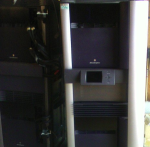Just for teh lulz:
http://www.faktor0.de/sslow.gz
(single executable file compressed with gzip)
To start the program:
gunzip sslow.gz
chmod 755 sslow
./sslow
------------------------------------------------------
Required Nekoware SDL packages
(same as for "thieves"):
neko_sdl-1.2.13.tardist
neko_libiconv-1.11.tardist
neko_expat-2005-01-28.tardist
neko_gettext-0.17.tardist
neko_glib-2.12.13.tardist
neko_libcroco-0.6.1.tardist
neko_libxml2-2.6.27.tardist
neko_zlib-1.2.3-r1.tardist
neko_ncurses-5.7.tardist
neko_readline-4.3.tardist
http://www.faktor0.de/sslow.gz
(single executable file compressed with gzip)
To start the program:
gunzip sslow.gz
chmod 755 sslow
./sslow
------------------------------------------------------
Required Nekoware SDL packages
(same as for "thieves"):
neko_sdl-1.2.13.tardist
neko_libiconv-1.11.tardist
neko_expat-2005-01-28.tardist
neko_gettext-0.17.tardist
neko_glib-2.12.13.tardist
neko_libcroco-0.6.1.tardist
neko_libxml2-2.6.27.tardist
neko_zlib-1.2.3-r1.tardist
neko_ncurses-5.7.tardist
neko_readline-4.3.tardist













 R12k @ 300MHz, 384Mb Ram
R12k @ 300MHz, 384Mb Ram



 <>
<>


